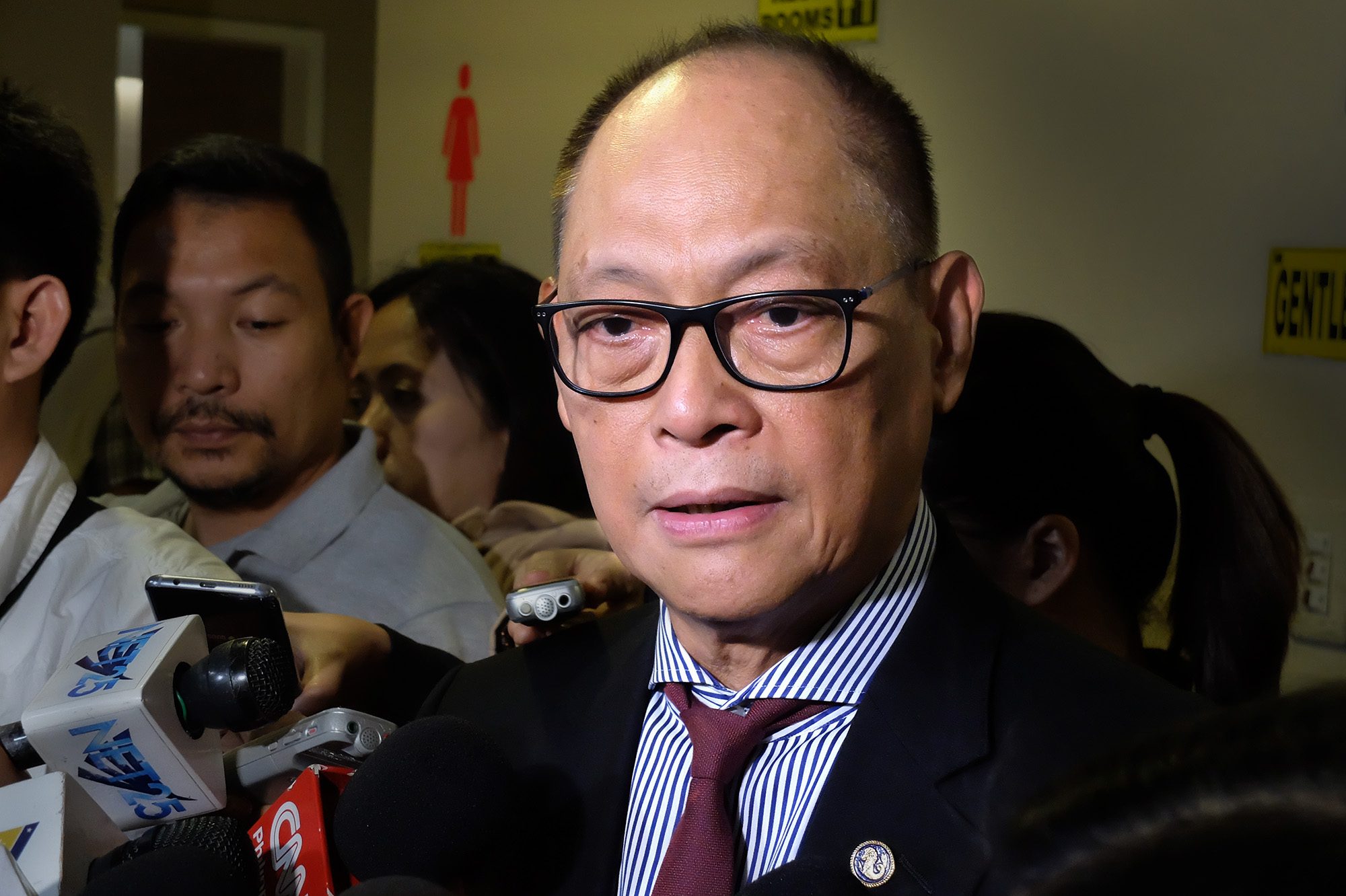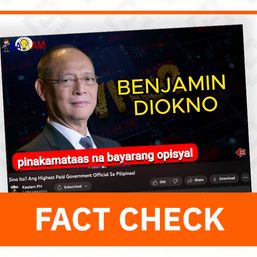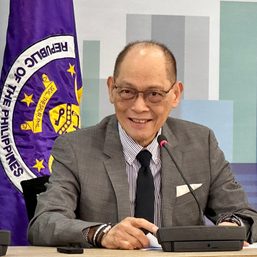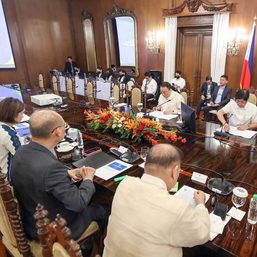SUMMARY
This is AI generated summarization, which may have errors. For context, always refer to the full article.

MANILA, Philippines – Finance Secretary Benjamin Diokno is banking on the mining industry as a potential source of sustained economic growth amid the pandemic.
“The mining industry holds the greatest potential to be a key driver in our economic recovery and long-term growth, especially now that world metal prices are high. The Philippines, after all, is one of the world’s most richly endowed countries in terms of mineral resources,” Diokno said on Wednesday, August 3.
He made the remarks during the listing of Philex Mining Corporation’s stock rights offer (SRO) shares on the Philippine Stock Exchange.
Philex raised P2.65 billion from the SRO, which it will use to pay for mine development, construction of a mill plant, and support facilities for its Silangan copper-gold mine project in Surigao del Norte.

The Silangan project, one of the biggest copper-gold mines in the Philippines, is planned to be mined in two phases. The first phase has a mineable ore reserve of 81 million metric tons and will be mined for 22 years at a rate of 4 million metric tons per year. Commercial operations are expected in the first quarter of 2025.
The Department of Finance estimates that the project can generate P8.5 billion in excise taxes alone for Silangan’s entire mine life.
Diokno added that the SRO means more jobs will be created, local economies will be reinvigorated, and additional revenues will be contributed to the government.
He called on the mining industry to strike a balance between the interests of local communities, the government’s economic agenda, and the environment.
“This is a non-negotiable condition so we can guarantee the sustainability of the industry and the strong economic growth of its host communities,” said Diokno.
The mining industry contributed P102.3 billion to the Philippines’ gross domestic product (GDP) in 2020, according to the Mines and Geosciences Bureau.
Mining revival
Former president Rodrigo Duterte sidelined mining for years largely due to the lack of a fiscal regime. His former environment secretary, the late Gina Lopez, also shuttered mining areas and ordered a comprehensive review.
It was only during the last few months of Duterte’s term that he and his economic team pushed for the revival of the mining industry, as the pandemic caused the Philippines to miss its growth targets.
In June 2022, a joint report published by the Department of Environment and Natural Resources, National Economic and Development Authority, Department of Finance, and Development Academy of the Philippines said that mining and quarrying contributed significantly to regional GDP in regions with mining operations.
In 2021, Duterte reversed his own directive to ban open-pit mining, a follow-through of his April 2021 executive order which lifted a nine-year moratorium on granting new mining permits.
President Ferdinand Marcos Jr. and his economic team, composed of officials who also served under Duterte, are taking off from the past administration’s pivot to mining. – Rappler.com
Add a comment
How does this make you feel?
![[Vantage Point] Gov’t turns to mining to lift economy](https://www.rappler.com/tachyon/2022/07/TL-Govt-opens-mining-July-16-2022.jpg?fit=449%2C449)

![[In This Economy] When invoking supply and demand can get you fired](https://www.rappler.com/tachyon/2023/09/cielo-magno-supply-demand-TL-sep-11-2023.jpg?resize=257%2C257&crop_strategy=attention)



![[In This Economy] A counter-rejoinder in the economic charter change debate](https://www.rappler.com/tachyon/2024/04/TL-counter-rejoinder-apr-20-2024.jpg?resize=257%2C257&crop=267px%2C0px%2C720px%2C720px)
![[Vantage Point] Joey Salceda says 8% GDP growth attainable](https://www.rappler.com/tachyon/2024/04/tl-salceda-gdp-growth-04192024.jpg?resize=257%2C257&crop_strategy=attention)
![[ANALYSIS] A new advocacy in race to financial literacy](https://www.rappler.com/tachyon/2024/04/advocacy-race-financial-literacy-April-19-2024.jpg?resize=257%2C257&crop_strategy=attention)


There are no comments yet. Add your comment to start the conversation.